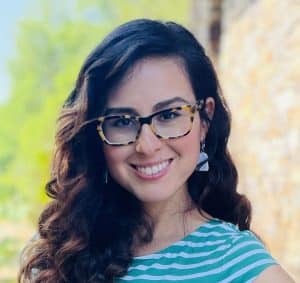About
Education
M.A.T. with a focus on Early Childhood Education — Brenau University
TESOL K-12 Certification — University of Georgia
B.A. in Chinese Language & Literature — University of Georgia
Learn More
Click the buttons below to learn more
Teaching Philosophy
Ever since I was a young girl, I knew I wanted to be a teacher. I have always had a passion for higher education as a student, but now I take pride in helping others learn and grow as students and as professionals in their graduate and post-graduate careers. Among the many factors that inform and guide my teaching philosophy, creating a comfortable and caring atmosphere of open communication and collaboration for my students is key.
At the start of every new session, I am tasked with selecting appropriate course objectives and student learning outcomes that guide my planning, instruction, and assessment in courses such as grammar, listening and speaking, and pronunciation. These objectives and outcomes are outlined in my syllabi, and while they certainly guide my instruction, I realize that what I teach and how I teach cannot be limited by possible constraints that such objectives and outcomes may present. In other words, I must be flexible. One thing that I have learned throughout my experience as an instructor in the Intensive English Program is that-as cliche as it sounds-communication is key. This of course is not true just for our program-it is true in any course, department, or other area of life for that matter.
How does effective communication play out in my classroom? On the first day of a session, I like to ask students to fill out an interest inventory in the form of an “About Me” sheet in which they tell me a bit about themselves, their interests, their background, and what they wish to learn in my course. In my instruction, I try to then make connections between what we are learning and what students are interested in. I believe that we learn better when we can make connections between the material we are taught in a classroom and our pre-existing schema. I also truly desire to know what my students think are things that I need to change about my instruction in order to make it more effective. To do this, I dedicate some class time to discuss what is working, what is not working, and how they feel about their progress in their journey to improve their English language proficiency. I ask students to be honest yet respectful, and while at times I must admit that such an exercise requires that I develop a tough skin, in the end I always appreciate students’ frank constructive criticism. How else can we as professionals and as people grow if we are not aware of how our actions and shortcomings affect others? How else can our teachings and growth of knowledge extend beyond the classroom?
It never fails that after my students and I have these constructive discussions that we find ourselves growing closer together as a family. Recently, one student that I found to be difficult came up to me and said, “Laura, you are a good teacher. You listen to us and you do something about the things that we tell you.” This sums up how indelible open, honest, and caring communication in which all parties speak and listen to each other is. Together, this effective communication yields stronger collaboration in the classroom, community, and thereby the world. Let change begin one person, one classroom, and one caring instructor at a time.
Inclusive Teaching Statement
The purpose of education should be to enlighten, empower, and equip students from all walks of life regardless of their ethnic, social, cultural, linguistic, and socioeconomic backgrounds. In order to do this, it is my mission as an educator to provide a space in my classroom in which all students feel comfortable, cared for, and accepted—by doing this, they feel liberated to become active agents in their learning process.
What does this look like in my TESOL classes? My students participate in class discussions by sharing their ideas freely, experimenting with the language, making mistakes, laughing about those mistakes, and learning from each other as a result. At the end of each 8-week session, we end up with a tight-knit family of English language learners who supports its members and whose bond has been strengthened because of that very freedom to pursue the difficult task of learning a foreign language in a community that values diversity, equity, and inclusion.
Diversity: I value the stories and experiences that students from all over the world bring to my classroom. They serve as a special means to enrich the tapestry of English language learning. We learn so much from each other by valuing what makes us unique.
Equity: At times, students with special needs, learning styles, and learning disabilities are part of our learning family. It is my responsibility to make sure that my instruction meets the needs of these students so that they too may receive the highest quality of education possible.
Inclusion: Regardless of where a student is from, what they believe in, or how they learn best, each and every one of them is cared for and included in our learning community.
Curriculum Vitae (C.V.)
Download the C.V.
Courses
July 2023:
- English for Academic and Professional Purposes
Fall 2023:
- English for Academic and Professional Purposes I & II
- American Culture & Current Events III
- Visiting Scholars Online Course
